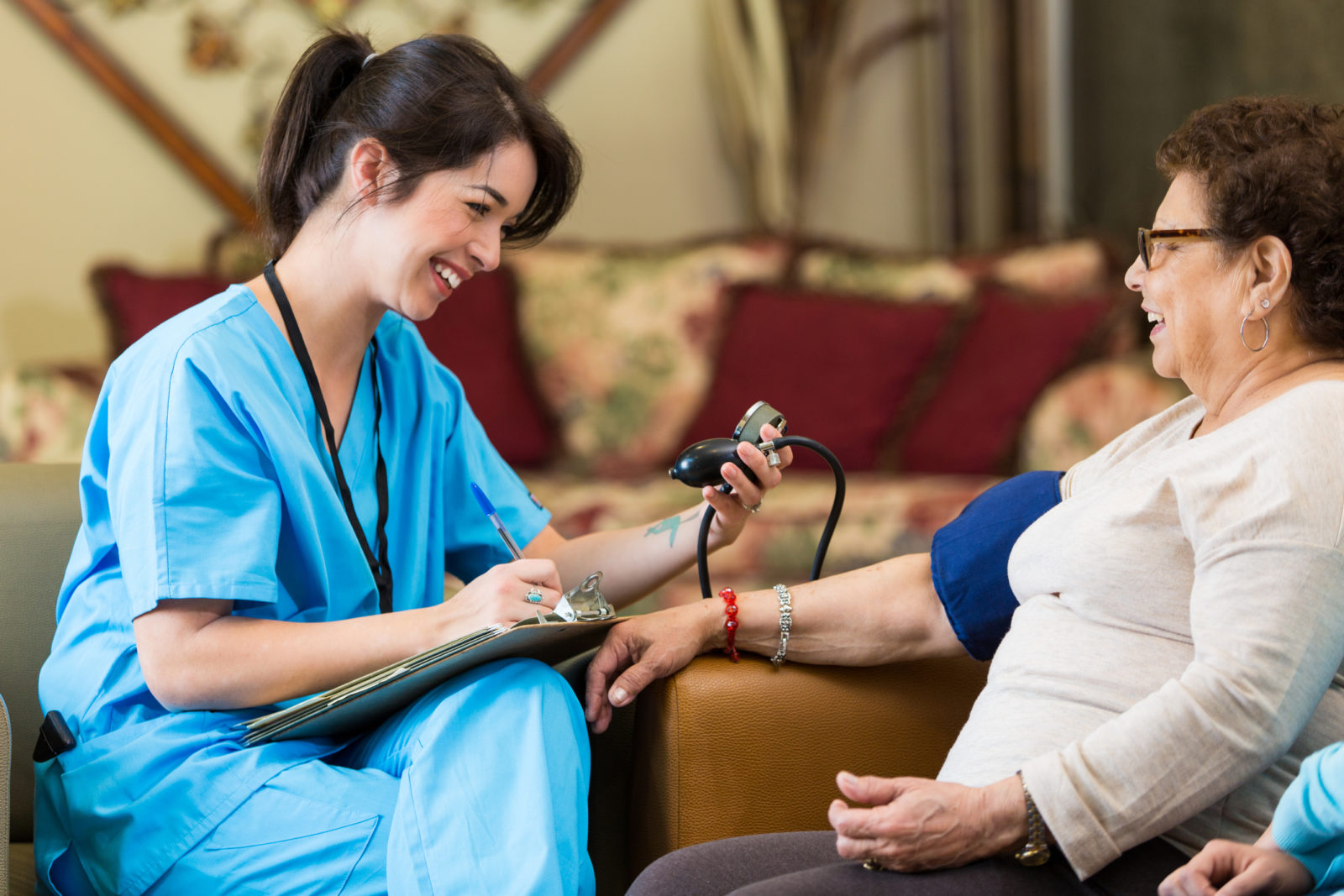Home Health Can Help Prevent Hospital Readmissions

According to the National Association of Area Agencies on Aging, nearly 20 percent of Medicare patients discharged from the hospital are readmitted within 30 days. Ninety percent of readmissions are unplanned and an estimated 75 percent of Medicare hospital readmissions may be preventable. There are numerous reasons for the high rate of readmissions. Often there is a lack of coordination after discharge. Fewer than half of readmitted patients see a physician prior to heading back to the hospital. Studies also show that nearly 20 percent of Medicare discharges are followed by an adverse event within 30 days, often related to medication mismanagement.
Shorter hospital stays increase the risk of readmission
Another reason for readmissions is that many patients are released too soon. Hospital stays are becoming shorter and shorter and many people are being discharged “sicker and quicker.” A recent study published in the Journal of the American Geriatrics Society discovered that shorter stays in the hospital are linked to earlier readmissions.
Post-hospital syndrome
Another reason may be the hospital environment itself. During hospitalization, patients experience a variety of conditions that can adversely affect their recovery once they’re home –sleep deprivation, poor nourishment, an increased exposure to infections, and a lack of physical activity. Each of these events can cause problems and impede a healthful recovery. In a January 2013 study appearing in the New England Journal of Medicine, Yale University’s Dr. Harlan Krumholz showed that many hospital readmissions are for a medical condition that is different from the initial cause of hospitalization, which he characterizes as “post-hospital syndrome” – a 30-day period where patients are at risk.
Making the Transition Safer
Transitioning from the hospital to a post-acute care facility or to home is a very vulnerable time for elder adults. The Agency for Healthcare Research and Quality calls for improvements in care transitions with these recommendations:
- Educating patients about their diagnosis and treatment while they are in the hospital and upon discharge
- Making appointments for needed follow-up care
- Improved instructions on how to take medications
- Following up with patients within a few days of discharge
How Home Health Care Can Help
One of most effective ways to help ensure a senior’s well-being after coming home for the hospital is to enlist the help of a home health professional. Studies show that people who live alone have a 50 percent higher risk of readmission than those who live with others. A home health professional can help monitor and assess a patient’s health status and be on hand to provide a variety of health care services including wound care, disease management, IV therapy, injections, fall prevention and by acting as a critical link in communicating with other care providers. Perhaps one of the most important roles Home Health can provide is to monitor and administer medications. As we discussed in this post, medication mismanagement is a serious problem, especially for seniors. There are nearly 100,000 ER visits by people age 65 and older each year due to adverse drug events. It is estimated that 88 percent of these are preventable.
Discover how Blize’s Home Health team can help you or a loved reduce the chance of a hospital readmission and stay healthy in the comfort of your own home.
![Blize Healthcare [logo]](https://www.blizecare.com/wp-content/themes/blize/images/logoblog_1.jpg)
![Blize Healthcare [logo]](https://www.blizecare.com/wp-content/themes/blize/images/logoblog_2.jpg)
![Blize Healthcare [logo]](https://www.blizecare.com/wp-content/themes/blize/images/logoblog_3.jpg)